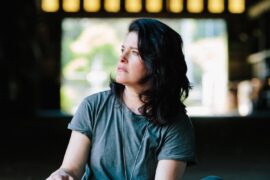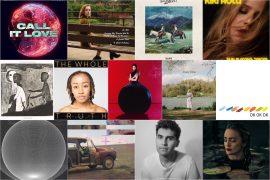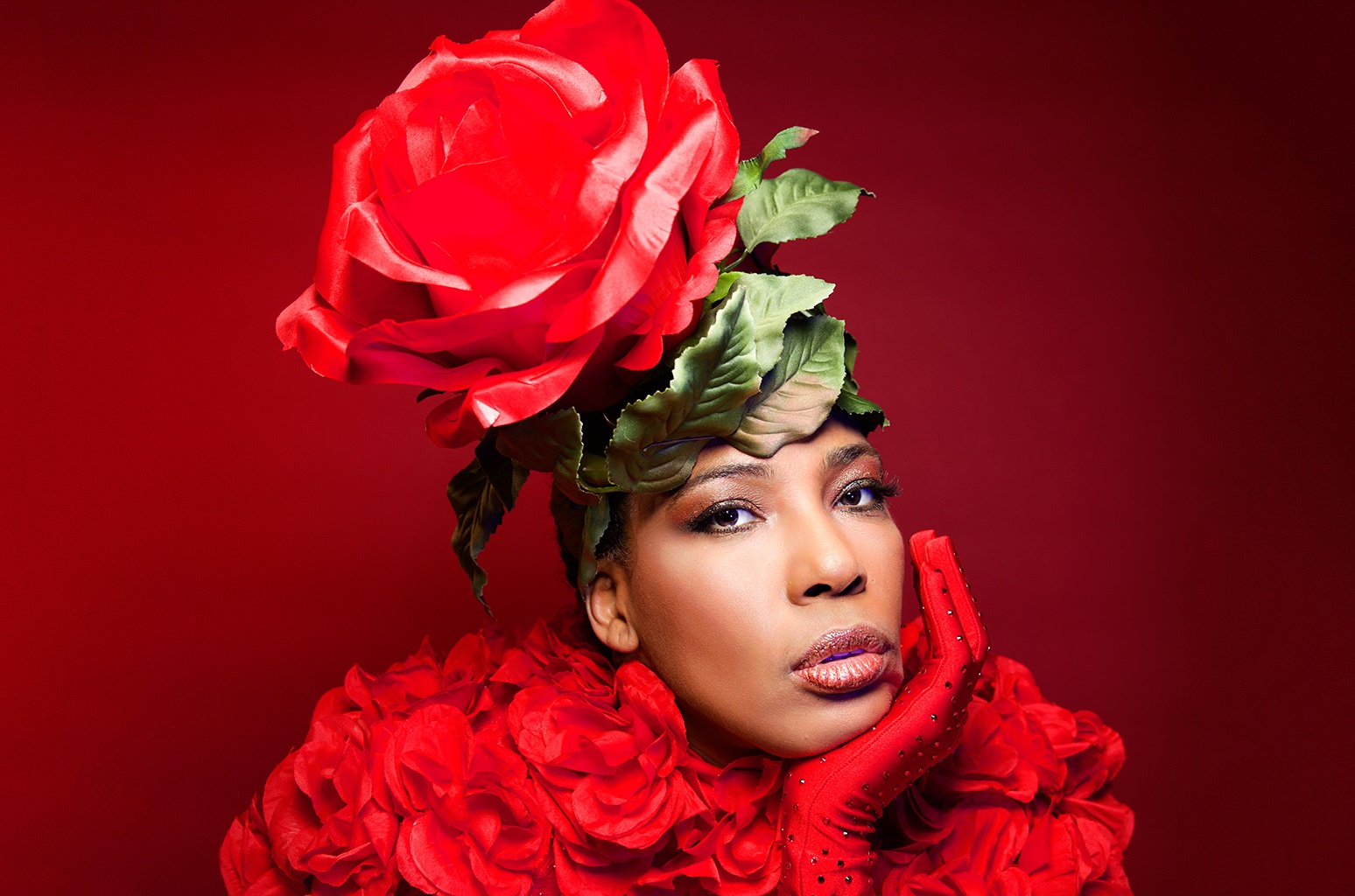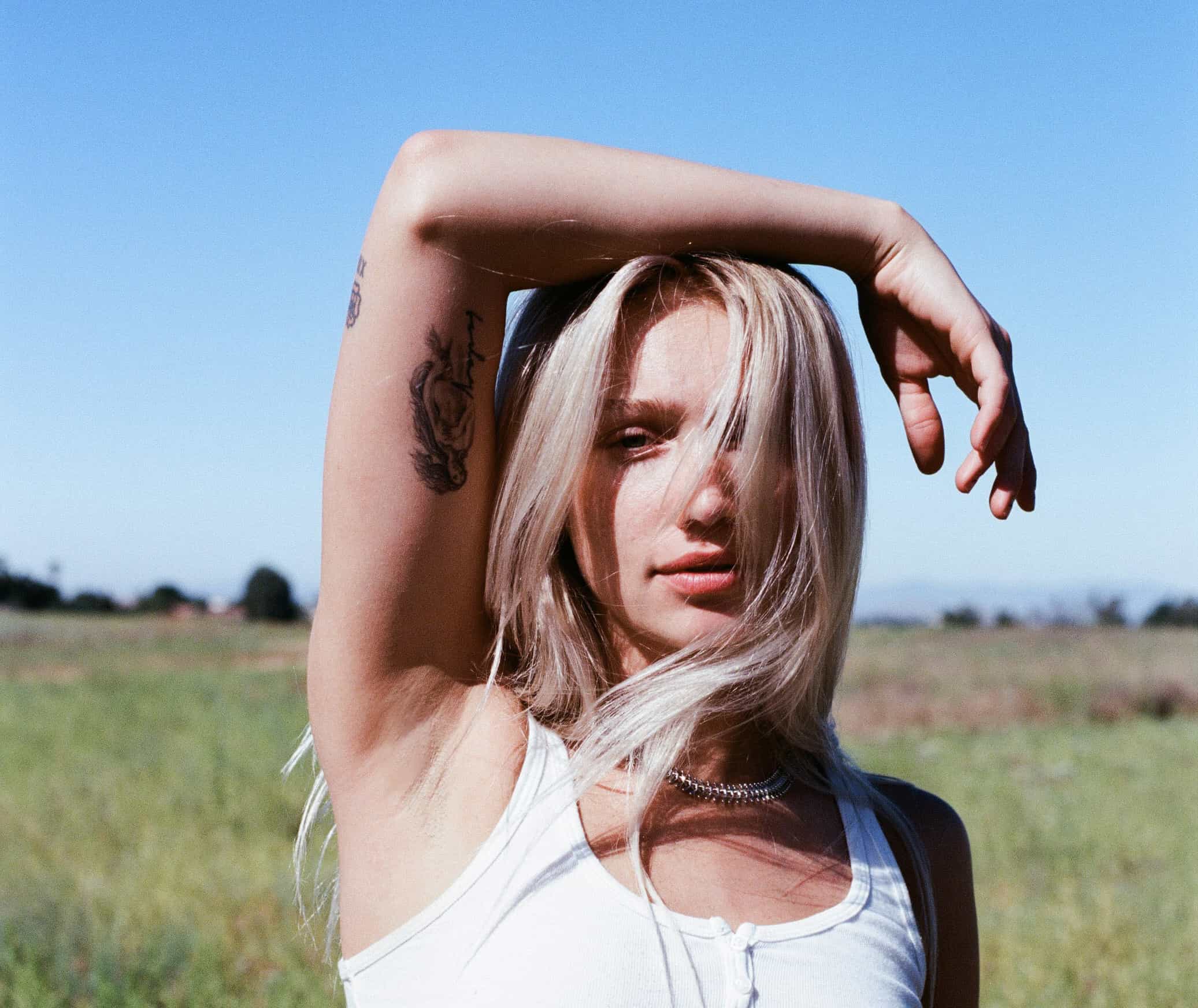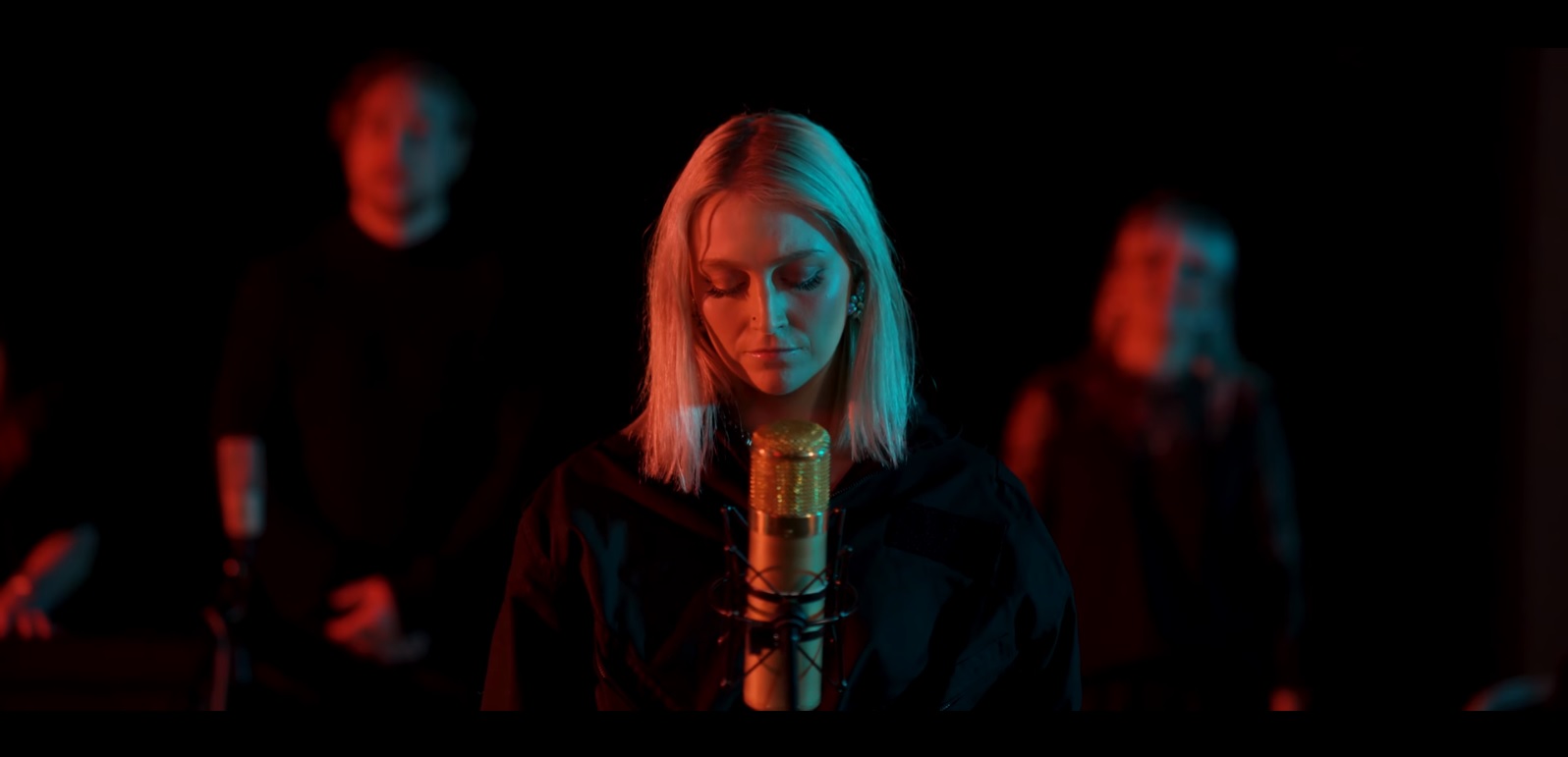Canadian singer/songwriter Lee Aaron returns in full force with her 16th studio album ‘Tattoo Me,’ a self-produced, high-powered collection of covers spanning countless genres, decades, and emotional landscapes.
by guest writer Emma Schoors
Stream: ‘Tattoo Me’ – Lee Aaron
“The song already has the word body in it. Do we need to sell my body?” Lee Aaron tells Atwood Magazine, looking back on her 1989 smash hit “Whatcha Do To My Body.”
After spending the early 1980s enduring ill-intentioned counsel by industry professionals, Aaron – born Karen Lynn Greening – was through with being led to use her beauty to promote her music. Here she was, an exceedingly gifted songwriter with original material and a rocking voice to sing it with, and appearances seemed to be the only thing on everyone else’s mind.
“I just felt consistently like I was battling the, ‘Let’s put you up front, let’s market the pretty girl,” Aaron says. “That was the modus operandi of all the labels.” Her goal had always been the polar opposite – to blaze a trail of originality for generations of female musicians and fans of all backgrounds to come.
Instead of giving into persistent suggestions to advertise herself alongside the track, Aaron made the bold choice to release “Whatcha Do To My Body,” Bodyrock’s lead single, with a simple heart design as its cover. Ironically, following her gut led to her most commercially successful track yet. “Let’s just let it be a really catchy, cool rock song about women being empowered with their own sexuality,” she recalls suggesting to her team. “And you know what? Radio liked it, because it wasn’t what they maybe were expecting.”
It was a long journey to Bodyrock, and it’s been a wild ride ever since. At age 15, Aaron joined her first band as a keyboardist and saxophonist, fulfilling both roles for the duration of three years. Once the group found a manager, however, she was singled out as the obvious choice for frontwoman. “The first thing he did is he pulled me out from behind the keyboards and said, ‘No, you need to stand in front of a microphone. This is your instrument. This is your tool that you’re gonna be using.”
Now left with just her voice, Aaron studied Bette Midler’s character in The Rose, as well as utilized her background in musical theater, to help assemble her onstage persona. “I’ve always thought of rock and roll as somewhat theatrical,” she says, and her fierce second studio album, Metal Queen, showcased her emotional expression with more artistic prowess and narrative cohesiveness than ever before.
“[Metal Queen] wasn’t about women or about sex or about hot cars or about all of this other fluff that a lot of the hard rock bands were writing about in the ’80s,” she says. Because of its empowering feminist message and conceptual universality, the record and the title track’s iconic video, are still being enjoyed and excitedly discovered 40 years on.

19 albums, countless genres, and lifetimes of achievements and awards later, Aaron has reinvented herself yet again with Tattoo Me. Released April 26 through Metalville Records, the cover album shines a light on all sides of Aaron’s wide-spanning influences, from Jet’s playful “Are You Gonna Be My Girl” to Hole’s melancholic, coastal “Malibu.”
Aaron’s rendition of Heart’s “Even It Up” breathes new life into the 1980 track, originally included on the band’s fifth studio album, Bebe Le Strange. “If you go back and you listen to those lyrics, “Even It Up” is really a song about equality of the sexes, and not many women were singing about that back then,” she says. “We were entering into a decade where women were really objectified and turned into record company products, and they represented something completely opposite to me.”
I took you over the tracks when you wanted some sin
I brought you satin and herbs from the places I been
Well now something tells me, baby you’re going to use me again
You think you can lay down the how and the where and the when
I tell you, even it up, even it up, even it up, right now
For Elton John’s “Someone Saved My Life Tonight,” glimmering piano and campfire guitars offer the song a heightened level of elegance, without sacrificing its lyrical impact. “Being an interpreter of other people’s material is an art in itself,” Aaron continues. “With some of the songs you go, ‘Does it really lend itself to being taken too far away from the original or not?’ Because it’s a fine line between surprising fans and making them angry.”
Just a pawn outplayed by a dominating queen
It’s four o’clock in the morning
Damnit, listen to me good
I’m sleeping with myself tonight
Saved in time, thank God my music is still alive
Looking back on her storied career, Aaron recognizes that it’s impossible to please everyone. “Now that I’m older, I’m like, ‘Ah, Classic Rock only gave me six stars. They don’t know what they’re talking about!’ You know? I know I made a good record. You have to believe in yourself,” she says.
Through hard work, patience, perseverance, and consistency, Lee Aaron has held her standing as Canada’s first lady of rock, metal, and jazz for over four decades. Her impact on the industry, particularly on women in music, is indelible – artists from Alanis Morissette to Shania Twain to Avril Lavigne have walked the path Aaron so dauntlessly paved.
Atwood Magazine sat down with the international recording artist recently to discuss Tattoo Me, Metal Queen’s 40th anniversary, and the importance of trusting your instincts.
— —
:: stream/purchase Tattoo Me here ::
:: connect with Lee Aaron here ::
A CONVERSATION WITH LEE AARON
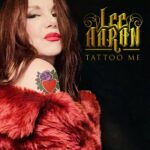
Atwood Magazine: Looking back just about a week ago, you played in Toronto at Classic Bowl Mississauga. Tell me how the show went! How was the turnout, and how did it feel to be onstage?
Lee Aaron: Oh, fantastic! Toronto’s my old stomping grounds. I lived there for many, many years. I don’t miss the traffic, but I do miss my friends and just the whole Toronto vibe. They’re wonderful people. I’m really happy to come in anytime to the GTA and do shows, but this was kind of special. It’s a gentleman named Ed Sousa [of] Sousa Productions, and he owns this sort of corner strip mall thing in Mississauga, and he’s turned this bowling alley into a concert event place raising funds for Ronald McDonald House, so it’s a good cause as well. He’s great friends with a lot of artists across Canada, and we’re always happy to come in to do these shows. And so despite some of the limits of the venue, like a low ceiling and things, he brings in top-notch production and we got to play with our friends Honeymoon Suite. It was just really, really wonderful, and very successful. It sold out.
You played your new cover of “Even It Up” by Heart during the set. You’ve spoken about the Wilson sisters' impact on you — what drew you to including this song on the record as opposed to a song like “Crazy On You” or “Barracuda,” which everyone else has done?
Lee Aaron: Well, you kind of nailed it right there. Everyone else has done it. Number one, I think trying to attempt “Crazy On You” is one of those things where no one’s ever gonna do it better than Ann and Nancy Wilson, the guitar and the vocals in that song. So I think you’re just borderline insane if you try to cover that song and make it as good or better. “Barracuda,” you can go to YouTube and see lots of young girls recording it themselves and putting it up on YouTube. I was kind of leaning in the direction of doing something that wasn’t an overdone cover of Heart. Even though I was influenced heavily by the ’70s, that album came out in 1980. Do you remember the cover of the Bebe Le Strange album?
Absolutely, they look so cool.
Lee Aaron: Like, they’re the coolest. They’re doing the permed hair and the chokers and that whole ’80s vibe before it became an ’80s vibe. I feel like they set the fashion trend almost with that record. And when I got that album in my hands, I was just like, ‘That’s who I want to be,’ right? It was their first album where they had parted ways with the Fisher Brothers, so they’ve kind of taken real feminine charge of their career. If you go back and you listen to those lyrics, “Even It Up” is really a song about equality of the sexes, and not many women were singing about that back then. It sort of embodied everything that I loved about them. Besides the great musicianship and songwriting, it spoke volumes in terms of them being equal members of a band. They wrote their own songs and played their own instruments, and we were entering into a decade where women were really objectified and turned into record company products, and they represented something completely opposite to me. That’s why I chose that song.
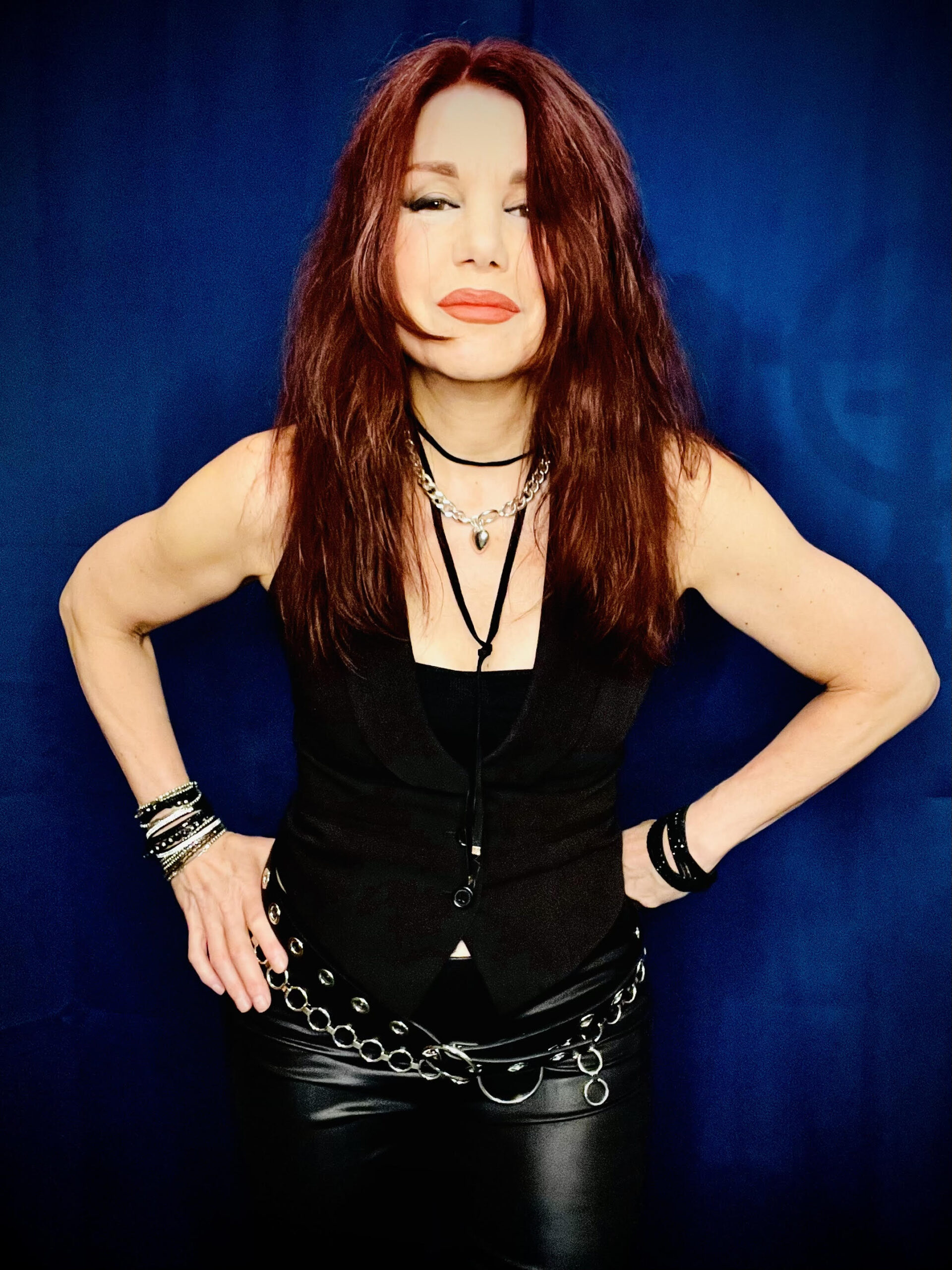
Something interesting about Heart is that they had female leads in Ann and Nancy, and the rest of the band were men, which was the same situation for you. Was it important for you to have that balance of feminine and masculine energy when putting together a band, or was that just how it fell into place?
Lee Aaron: Just more circumstantial, yeah. In the ’90s, I actually had a female keyboard player in my band for a while, although the ’90s was kind of a lost decade for many of us who evolved and came of age during the classic rock era in the late ’80s. I don’t know if many people saw me with the female keyboard player in my band. For the longest time, the same female keyboard player worked with me in my jazz era in the late ’90s, early 2000s. So it’s not as though I’m opposed to working with females in the least. She was a fantastic keyboard player! But just circumstantially, I’ve always hired the best person for the job, and circumstantially that’s ended up being men. I mean, the nice thing about having men in your band who are songwriters and artists as well, which I’m very blessed to have in my band. It’s not like I just 100% do everything myself. I invite a lot of creative input when I’m working, and I think creative people in general have a lot of both masculine and feminine energy. There’s a lot of that firing back and forth, those pistons firing back and forth in our band all the time.
Nowadays you self-produce everything, right? Where do you typically record?
Lee Aaron: I’ve done it in different ways in the last few years. My favorite way to do it, really, is to go into a big studio and record bed tracks. Like your basic bass, drums, guitar tracks, because it’s nice to be able to have a warehouse or a very big room to record and close mic your drums, bring it home, do all the overdubs at home, all my vocal tracks and keyboard tracks and extra guitar tracks, then take it back into a big studio to mix. That’s my dream thing. But even that is becoming increasingly cost prohibitive and with digital technology, it’s not always necessary. So I’ve also recorded completely on my own, which is the last album. We did it in our home studios. The tracks were cobbled together and put together in my studio, because I was the producer. I did the last album, Tattoo Me, that way. I did the Christmas album that way. I think one of the most valuable things that any artist, but especially female artists should really do is learn music software, learn how to use it, learn ways to be able to put your ideas down and illustrate them in a way that people can see what you’re doing. You know what I mean? Rather than relying on an outside producer or an outside engineer in a studio to do that for you.
Another great cover on the record is Hole’s “Malibu.” I never realized your voice could sound so much like Courtney Love’s. How did you decide which covers to keep close to their original recorded versions, versus which ones to totally take in your own direction?
Lee Aaron: That’s a great question. We tackled it sort of on a song by song basis with a bit of an experimentation with tempos and keys and things like that, and that was one of the songs where I sang it. I don’t have that sort of atonal rasp kind of thing that Courtney has in her voice, but in terms of keeping it fairly true to the original melody obviously, and the original vibe of the song, it was just one of those songs that it felt like if we take it away from this, it’s just gonna lose its authenticity. So we kept it fairly much like the original. Whereas you’re right, there are others we took further away.
A song like “Someone Saved My Life Tonight,” I’d always wanted to cover it, but I always heard it done with acoustic guitars, almost like campfire guitars. We were questioning, ‘Can we pull it off? Can we make it work?’ And I think we did. One of the things I realized when I got into recording that tune is that when I just put a rough vocal down on it, what was really missing is all those building blocks of the layers, and the layers of the background vocal parts that are really structured. They come in and they come out of certain parts. I realized that was actually a very important element in that song to pull it off and to make it sound like it consistently builds and builds to the end. It’s a hard question, because being an interpreter of other people’s material is an art in itself. With some of the songs you go, ‘Does it really lend itself to being taken too far away from the original or not?’ Because it’s a fine line between surprising fans and making them angry.
Thinking about your background in theater makes this record make even more sense, because you're lending your voice to all these different styles and genres. How has your background in theater influenced your vocal style?
Lee Aaron: Well, that’s a great question. No one’s ever asked me that. I think it certainly has influenced my performance style onstage, because I’ve always thought of rock and roll as somewhat theatrical, you know? The big moves when you’re onstage, and a lot of it just comes extremely naturally. But I think that my background in vocal training and being involved in theater has been extremely helpful to me over the years. In fact, I just recently had an appointment with the top vocal cord specialist here in Vancouver, because I had a tiny rough patch with my voice and I panicked. She took a look down there and she’s like, ‘Your vocal cords are totally pink and totally healthy, and you’ve been singing rock for 40-what years?’ So that was really reassuring.
What it solidified for me is that the vocal techniques that I have used over the years in terms of singing have preserved my voice and my vocal cords and kept them healthy. I’m thankful to theater for that. But probably stylistically, I learned more from listening to Robert Plant, just Led Zeppelin records over and over again, or those old Heart records, right? Listening to Ann Wilson with my little suitcase record player in my basement when I was a teenager, singing along to those albums over and over and over again.
At age 15, you joined your first band, Lee Aaron, as a keyboardist and saxophonist. You were essentially their Christine McVie. When did you transition from those instruments into being a lead vocalist?
Lee Aaron: You’re absolutely right. That is what I did in my first band for probably three solid years before we actually met the gentleman who became our first manager. And as a manager, he’s thinking marketing and, ‘How do I sell this?’ We ended up playing the nightclubs, and the first thing he did was he took me to see Bette Midler in The Rose. Do you remember that movie?
I’ve heard you mention it, so I know it through you.
Lee Aaron: He took me to see that movie because it was popular, and she’s just got the greatest voice and the greatest stage moves. She plays the greatest character, although it’s somewhat of a tragic ending in that movie, but he’s sort of like, ‘This is what you need to be doing.’ So for me it was all educational. The first thing he did is he pulled me out from behind the keyboards and said, ‘No, you need to stand in front of a microphone. This is your instrument. This is your tool that you’re gonna be using. Playing saxophone is not sexy.’ I mean, I’m grateful that I have some piano background and some music theory background because it’s enabled me to obviously write tons of songs on my own. I can sit down and write a song on guitar or piano and I do, but his thing was, ‘You need to be the featured part of the band, and aesthetically it looks better for you to be out front.’
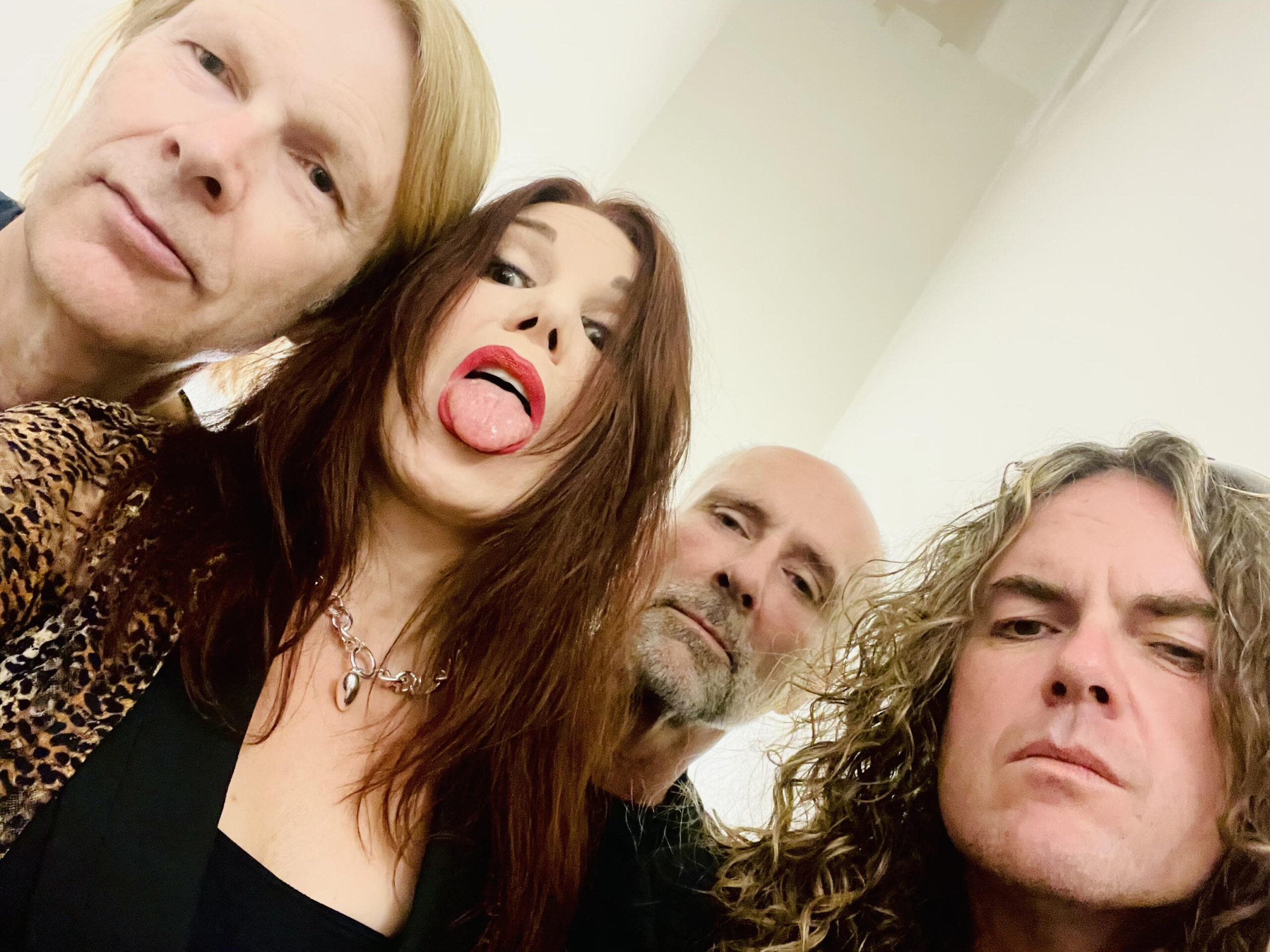
After Lee Aaron Project you released Metal Queen, which is celebrating its 40th anniversary this year. Why do you think it’s held up so well, and remained this timeless piece of art?
Lee Aaron: That’s really kind of you to say, thank you. Well, there was a time in my life when I didn’t feel it was a timeless piece of art. There was a time in my life when I was younger, especially in the initial few years of my career, when certainly here in Canada, I felt like people just weren’t ready for that. They weren’t ready for a girl doing really hard-edged rock because that just wasn’t what young ladies did. I had a little bit of a chip on my shoulder for quite a few years, because people treated me somewhat as a novelty when I was younger.
But it’s funny, you start realizing when you get older and one of the greatest lessons you learn in your life is that hard work and perseverance and consistency in quality is one of the most important things that you can do. Obviously, I never gave up. I continued to write and record and tour. Good reviews, bad reviews, you were always gonna go through things like that, and I took it all very personal when I was young. Now that I’m older, I’m like, ‘Ah, Classic Rock only gave me six stars. They don’t know what they’re talking about!’ You know? I know I made a good record. You have to believe in yourself. It’s somewhat interesting for me that it’s kind of come full circle now.
I’ve had many more opportunities to talk about the true narrative of the work and of the song itself – that it was supposed to be a pushback against all that objectification and sexism in the ’80s against women. It was about being empowered, and it was supposed to be a feminist statement. And it’s interesting, ‘cause I talked just recently to a gentleman from Stereogum and we did a frame by frame of “Metal Queen.” He said, ‘For the 40th anniversary, let’s go through this.’ It was quite fun, and there were quite a few chuckles over the kitschiness of it. But one of the things that I’d never really considered, and he said to me what he loved about that song was that the lyric content was empowering. It was a tour de force. This song, it wasn’t about women or about sex or about hot cars or about all of this other fluff that a lot of the hard rock bands were writing about in the ’80s. And for him, he felt that was why it stood the test of time.
That’s absolutely true. Another earlier record was 1989’s Bodyrock. I remember seeing that cover for the first time and thinking, ‘I need a jacket like that. I need to do my hair like that.’ You just looked so cool. But, you actually didn’t include your face at all on the “Whatcha Do To My Body” single art. Why did you go that route? That was a risky move back then.
Lee Aaron: It worked, though. Taffi Rosen, the photographer, I loved working with her and she made me look super cool. I love her for that. We were together trying to create an image that looked really rock, but really classy, you know? I credit her with that. She was a wonderful photographer. And when it came time to release the first single to some degree, throughout the ’80s, I just felt consistently like I was battling the, ‘Let’s put you up front, let’s market the pretty girl.’ That was the modus operandi of all the labels, if they could market a pretty girl and find her songs that they own the publishing for. I felt like I was constantly pushing back against being marketed as a product like that. And when it came time to go to radio with a single, I’m like, ‘Okay, the song already has the word body in it. Do we need to sell my body? Let’s just let it be a really catchy, cool rock song about women being empowered with their own sexuality. We don’t need to put my face on the single.’ We had this graphic artist do some airbrush work on that heart on the back, and, and they went, ‘Okay, alright.’ And you know what? Radio liked it, because it wasn’t what they maybe were expecting.
You said around the time of the album’s release that it was your proudest work to date. Now, 19 albums in, do you still take pride in it?
Lee Aaron: Oh, 100%. I’ve said this in interviews as well, sometimes I feel like I’m repeating myself, but if you’re gonna tell the truth, you’re bound to repeat yourself. One of the greatest joys in my career to date is being on stage and seeing dad who’s a big fan with his 8-year-old daughter on his shoulder and grandpa there, and they’re all generations of Lee Aaron fans. 60, 40 and eight. When you’ve created songs that resonate across generations, what greater gift are you ever gonna get when you see the joy that it brings to people? I love revisiting that nostalgia and giving people that thrill when it takes them back to a time and a place. I have people come up to me and go, ‘I love this particular song,’ or ‘Tough Girls Don’t Cry’ got me through a really rough time in my life.’ And you go, wow. If my music has made a difference in one or two people’s lives, it was worth it. I’m proud of that record for sure.
You’ve had some great experiences, but you were also occasionally led astray by industry professionals as a young woman. Do you think the industry has improved in terms of empowering women and their creative autonomy, or is it similar to when you started out?
Lee Aaron: Again, great question. I think it’s come a long way. I would still like to see more women in the boardroom and more women in high professional positions on the industry side. You’re not seeing so much of that, but in the ’80s it was just really shocking for a woman to get on stage and pick up a guitar and write angry songs. Then that became the thing in the ’90s with Alanis Morissette and Garbage and Shirley Manson and Breeder and Hole. That became the thing. I think now more than ever, women are empowered to be whoever they want. The other thing nice is women are completely allowed to own their sexuality now without being called a tramp for doing so. Do I think it goes over the top sometimes? Yeah, I do. I see a lot of the younger artists and I go, ‘You’re talented. You’re really talented. You don’t have to do that, or you don’t have to wear that.’ But if you choose to do so, all the more power to you.
It’s about that choice. As a trailblazer in so many genres, what advice or words of encouragement would you offer young women looking to break into the industry?
Lee Aaron: I would say don’t get talked into anything. That if your gut tells you, ‘This feels uncomfortable,’ don’t be swayed. Even if someone else is telling you it’s the right thing to do, trust your instincts, number one. Because I didn’t when I was young. I thought, ‘These people must know so much more about the industry than I do. I need to follow their advice.’ Number two, it’s wonderful to be influenced. Definitely glean as many influences as you can, but do not imitate. Be yourself. You really have to have your own original voice, and finding your own original authentic voice may take some time. Don’t give up after two years because you feel that you haven’t become a big influencer. I mean, now people expect instant results with social media. That’s not how it works. There’s value in building a grassroots following, and starting from the bottom. Learn music software. The most valuable tool or the most powerful tool you can have is the ability to be able to record yourself and know what you wanna hear, and to know and understand technical music and recording vocabulary. So when the opportunity rises, and you do go into a big studio, you know what you’re talking about and you know what you wanna hear. I think that’s the other thing as well, just be yourself.
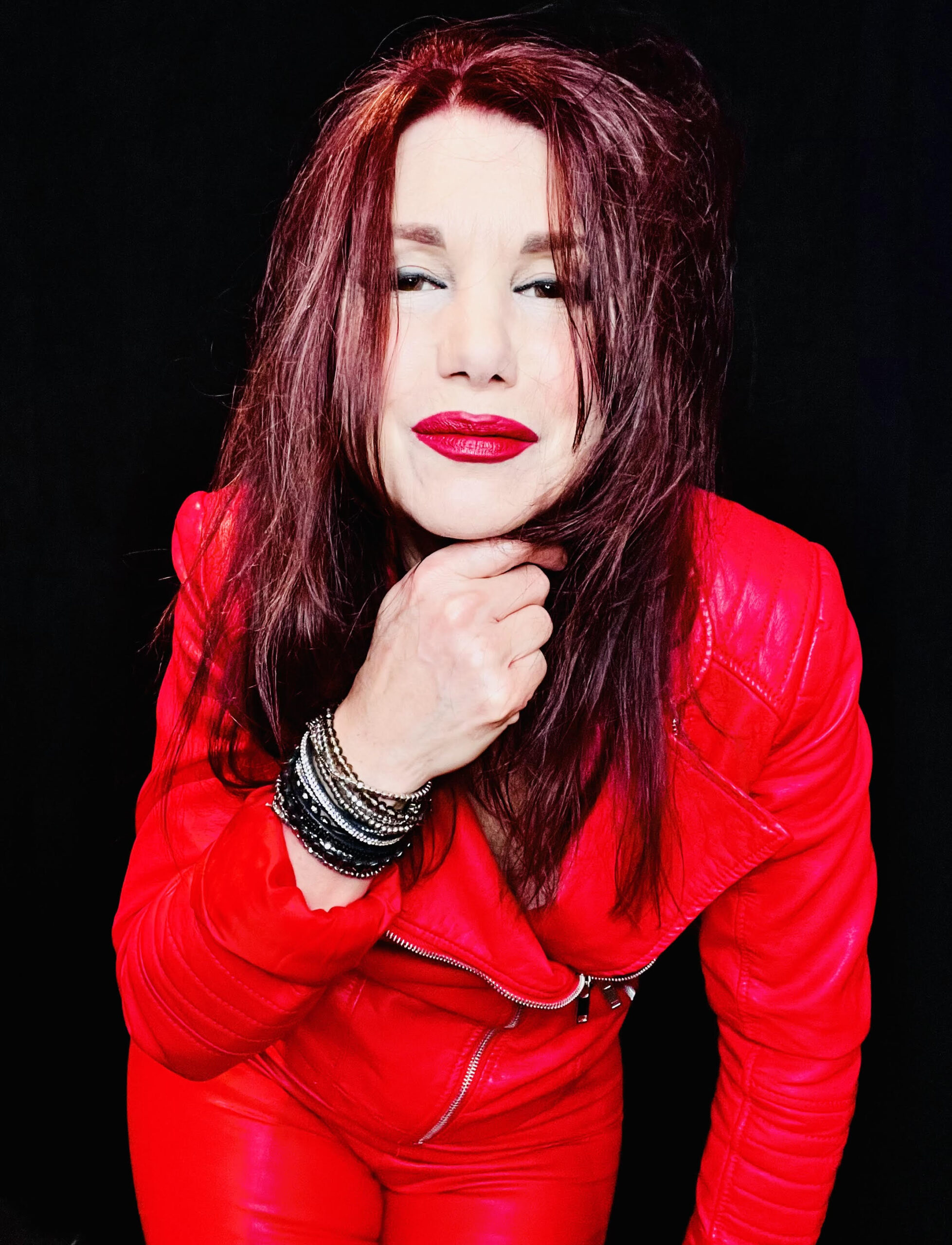
If you could go back and tell your 15-year-old self anything about her career to come, what would you say?
Lee Aaron: Red spandex hot pants… [laughs]
I thought those were cool!
Lee Aaron: Oh, really? I would’ve trusted my gut and trusted my instincts, but I was a teenager and I was a kid. I also had, God love my parents. You know, my mom sang in the church choir and they had normal people jobs and my dad had stars in his eyes about the industry, but my parents were also naive. I wished I’d had parents that knew something about the music industry and went, ‘Maybe trusting that that particular person is not a great idea,’ but they didn’t know either. But you know what? I’m not a person that has regrets. I think regrets are pointless. Everything is a big learning curve on your journey, and all the battle scars that I have today have shaped me into the artist and the person that I am, and still gives me lots of things to write about. I don’t have any regrets. It’s a big musical adventure and it’s still going, and I’m having fun.
— —
Emma Schoors is a 20-year-old music journalist and writer based in Southern California. When she’s not interviewing rising names in alternative rock, Schoors can be found on the open road exploring countrywide music scenes, food, and culture.
— —
:: stream/purchase Tattoo Me here ::
:: connect with Lee Aaron here ::
— — — —

Connect to Lee Aaron on
Facebook, Twitter, Instagram
Discover new music on Atwood Magazine
© courtesy of the artist
:: Stream Lee Aaron ::

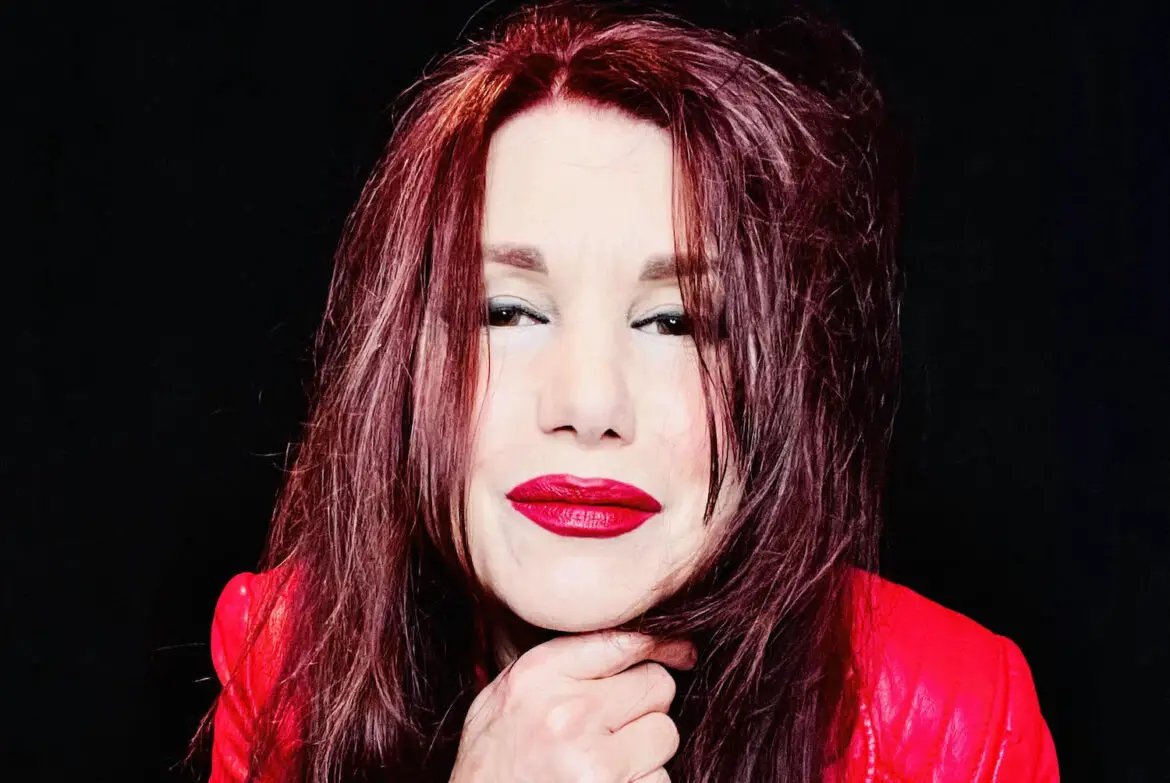
 © courtesy of the artist
© courtesy of the artist
